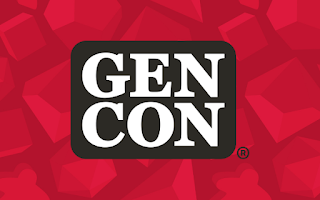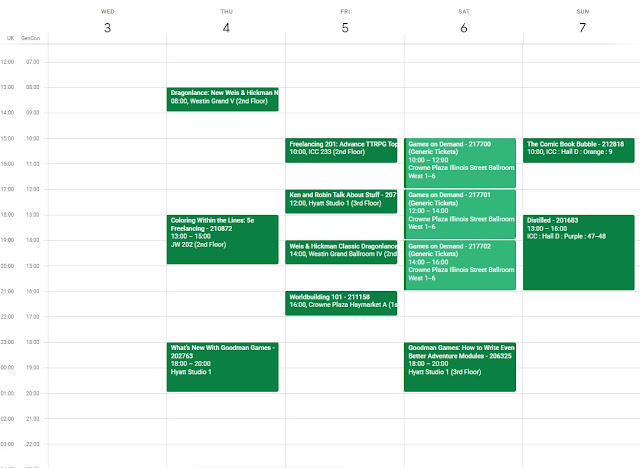As per a previous post I signed up to take part in the Storytelling Collective's RPG adventure writing workshop during July, this time opting to write for Call of Cthulhu after previously writing a DMsGuild module - Unsettled Ground.
I wanted to capture some of the thinking that went into The Oxford Articles and how it might lead in to other things I have planned.
Firstly though, what is the adventure?
What connects a fire at St Michael At The North Gate Church,
a series of missing books and The Order of the Green Gate?
Visit Oxford, England in 1953 and help uncover the truth.
As I said in that previous post, until very recently, like a few days before the workshop started, I have never owned any edition of Call of Cthulhu nor have I ever played or ran Call of Cthulhu.
That said, I had the Starter Set on PDF and the Keeper's Rulebook (and PDF thanks to Bits & Mortar) to work from. Plus I understood the environment that the game operates within and also had a handle on the basic mechanics of the game before jumping into the workshop.
But of course the first hurdle in anything like this is - "What are you going to write?"
So I already had an idea that I'd started to draft but I didn't want to use that for the workshop. Instead I wanted to write something completely different and something that challenged me.
The only thing I kept from the other idea was the name of a secret society, namely "The Order of the Green Gate". I fully intend to publish that other adventure in due course, November hopefully, so I won't give too much away but this specific secret society and the history of its members is something I plans to write about in general, potentially up to ten different adventures. But we're getting sidetracked...
The workshop asked participants to brainstorm different ideas for what to write. From that list the idea is that you choose one then start to work on it, with the others either being ones you'll revisit in the future or exiled to the writer's bin.
One of those ideas a strong theme started to come through; books, and more specifically university libraries. I didn't want to write something in 'standard' Cthulhu country and so I started to narrow it down to UK based universities that would have old books. That's quite a long list so I picked three universities and then started to look at real world connections to the unusual or perhaps events that could be leaned towards the unusual in a work of fiction.
Two things started to shine very brightly through my 100+ Chrome tabs:
- Oxford University has a loose but real connection to The Smithsonian in Washington D.C. thanks to one James Smithson who attended Oxford University in the 18th Century and his fortune and collection is what established The Smithsonian.
- St Michael At The North Gate Church in Oxford had a fire in October 1953.
Two seemingly unconnected things suddenly became connected.
So I began to create those connections and weave a series of events that would result in someone requesting aid from 'investigators'.
It's worth noting that I wasn't born in 1953 nor have I ever been to Oxford never mind the University. So this presented several challenges on a research front.
The workshop suggests that you aim for 3,500 words for the adventure and the recommendation is that you write a one shot.
Going into it after the experience of writing Unsettled Ground, I was wary of falling into the trap I did last time. Namely, I wanted to ensure that what I was writing didn't grow out of control and become largely impossible to complete in the time frame of the workshop.
It's safe to say that I failed at that!
Around the 20th of July I realised that I wasn't going to finish the adventure within the month, I also knew that my plan was to playtest the adventure on the 28th July... Which was almost identical to what happened with Unsettled Ground. So using that learning I set about constraining the scope of the adventure, using techniques and outputs from the workshop to help me do that but also just simply binning content that whilst added more flavour also added about 1,500 - 2,5000 words and time I no longer had...
One of those items that landed on the cutting room floor was a fictional expansion of the tunnel network underneath Oxford. Something I might revisit in the future.
It was during this cutting exercise that my 'draft' was done. It wasn't actually a complete draft though but it was enough material for me to run it and for friends to 'tear it apart in a nice way'.
The 'draft' even with chunks removed was easily a two-session if not three-session adventure, ultimately depending on how deep into the investigation the players go.
The playtest was invaluable both as a Keeper and from the excellent feedback I got from those who played. Adding that together with the 'tear apart' feedback gave me a good solid steer on what needed to change to improve the adventure and ultimately finish it.
Oh, and I forgot to say that during the month of July my laptop died. Fortunately everything was stored in the cloud so no data was lost but I was largely without tech for a week.
Ultimately though, The Oxford Articles was published on the 3am BST on the 5th August and has since gone Copper (51+ sales) and seems to be quite popular too!
I have to add, the RPG Writer Workshop and Miskatonic Repository communities are amazingly helpful and encouraging. They really are communities that celebrate each others success. So if you get the chance to be part of either or both communities, go for it. You won't regret it.





